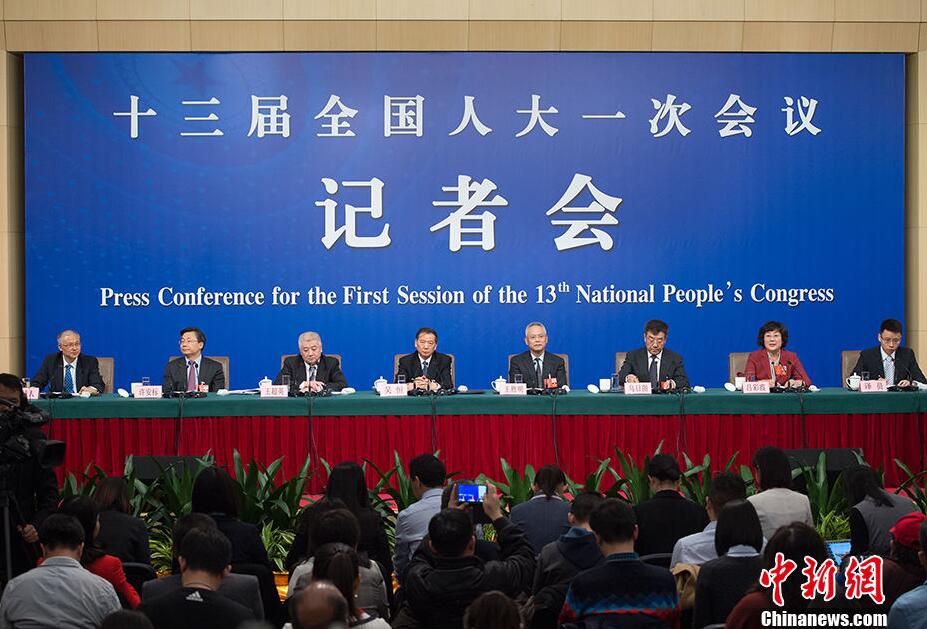
Logistics management system is a software system used to manage and optimize logistics operations.It improves logistics efficiency and reduces costs by integrating and automating various aspects of logistics activities, including order processing, inventory management, transportation arrangement, cargo tracking, etc.
Logistics information management system refers to the logistics management of enterprises, including the information management system of third-party logistics. The system involves warehousing operation management, transportation and loading management, financial management, human resources management and other contents.
Logistics ERP management system refers to a logistics information management system developed based on the ERP concept and logistics business characteristics. It integrates the logistics resources and processes of the enterprise, including transportation, warehousing, packaging, distribution, etc.
The logistics erp management system includes the delivery business management module: waybill preparation, including the entry, printing, storage, classification, retrieval, statistics and other functions of waybills.The goods are transferred, and the receipt is directly diverted to the third-party carrier company for reconciliation of the transit goods.
Generally speaking, the ERP system is a management information system that comprehensively integrates logistics, capital flow and information flow.
Logistics Information Technology refers to the information technology used in all aspects of logistics.
1. Continuously strengthen the level of logistics information management and introduce advanced logistics management experience. Streamline the actual workflow. Now that the internal process has been sorted out, information transformation and construction should be carried out on this basis.
2. Enterprise management belongs to the "supervisor" of logistics management, and supervises the operation of the logistics information system by subordinate employees reasonably, legally, and correctly to ensure the smooth and efficient flow of logistics. In other words, logistics information can clarify the responsibilities of staff, which is conducive to the management of employees' performance and other conditions.
3. Quotation management includes importing quotations and setting shipping methods. Operation management includes order recording, automatic minimum price division and adjustment, shipment, order exchange, return and other processes. Customer service management includes the processing and automatic inspection of problems.
4. The second level is management control, which requires focusing on functional measurement and reporting. Functional measurement is necessary to provide management feedback on service level and resource utilization. Therefore, management control involves evaluating past functions and identifying various options.
Logistics system is a management system, which is generally used to manage vehicles, drivers, routes, customers, contracts, warehouses, finance, etc.
There are seven elements in the logistics system: fluid, carrier, flow, flow, flow, flow rate and flow efficiency. The logistics system has seven elements: fluid, carrier, flow, flow, process, flow rate and flow efficiency. Fluid: refers to the goods transported through logistics.
The functional elements of the logistics system are generally considered to include transportation, storage and custody, packaging, loading and unloading, circulation and processing, distribution, logistics information, etc. If we examine the actual work links of logistics activities, logistics consists of the above seven specific tasks. In other words, logistics can realize the above seven functions.
As for transportation, some people think that logistics is transportation, which is not comprehensive. Transportation can be said to be the driving force of logistics. It is a mechanical carrier. It transports goods from one place to another in various ways, so that the displacement of goods can be realized.
The study of related logistics activities from the perspective of enterprises is a typical field of specific and micro-logistics activities. (5) International logistics. International logistics is a large-scale logistics field with the rapid development of modern logistics system. International logistics is a logistics activity that accompanies and supports international economic exchanges, trade activities and other international exchanges.
Five goals of the logistics system: the objectives of the logistics system, that is, the capabilities required by the established logistics system, generally have five aspects: service objectives;Fast and timely goals; saving goals; scale optimization goals; inventory adjustment goals.

Binance login-APP, download it now, new users will receive a novice gift pack.
Logistics management system is a software system used to manage and optimize logistics operations.It improves logistics efficiency and reduces costs by integrating and automating various aspects of logistics activities, including order processing, inventory management, transportation arrangement, cargo tracking, etc.
Logistics information management system refers to the logistics management of enterprises, including the information management system of third-party logistics. The system involves warehousing operation management, transportation and loading management, financial management, human resources management and other contents.
Logistics ERP management system refers to a logistics information management system developed based on the ERP concept and logistics business characteristics. It integrates the logistics resources and processes of the enterprise, including transportation, warehousing, packaging, distribution, etc.
The logistics erp management system includes the delivery business management module: waybill preparation, including the entry, printing, storage, classification, retrieval, statistics and other functions of waybills.The goods are transferred, and the receipt is directly diverted to the third-party carrier company for reconciliation of the transit goods.
Generally speaking, the ERP system is a management information system that comprehensively integrates logistics, capital flow and information flow.
Logistics Information Technology refers to the information technology used in all aspects of logistics.
1. Continuously strengthen the level of logistics information management and introduce advanced logistics management experience. Streamline the actual workflow. Now that the internal process has been sorted out, information transformation and construction should be carried out on this basis.
2. Enterprise management belongs to the "supervisor" of logistics management, and supervises the operation of the logistics information system by subordinate employees reasonably, legally, and correctly to ensure the smooth and efficient flow of logistics. In other words, logistics information can clarify the responsibilities of staff, which is conducive to the management of employees' performance and other conditions.
3. Quotation management includes importing quotations and setting shipping methods. Operation management includes order recording, automatic minimum price division and adjustment, shipment, order exchange, return and other processes. Customer service management includes the processing and automatic inspection of problems.
4. The second level is management control, which requires focusing on functional measurement and reporting. Functional measurement is necessary to provide management feedback on service level and resource utilization. Therefore, management control involves evaluating past functions and identifying various options.
Logistics system is a management system, which is generally used to manage vehicles, drivers, routes, customers, contracts, warehouses, finance, etc.
There are seven elements in the logistics system: fluid, carrier, flow, flow, flow, flow rate and flow efficiency. The logistics system has seven elements: fluid, carrier, flow, flow, process, flow rate and flow efficiency. Fluid: refers to the goods transported through logistics.
The functional elements of the logistics system are generally considered to include transportation, storage and custody, packaging, loading and unloading, circulation and processing, distribution, logistics information, etc. If we examine the actual work links of logistics activities, logistics consists of the above seven specific tasks. In other words, logistics can realize the above seven functions.
As for transportation, some people think that logistics is transportation, which is not comprehensive. Transportation can be said to be the driving force of logistics. It is a mechanical carrier. It transports goods from one place to another in various ways, so that the displacement of goods can be realized.
The study of related logistics activities from the perspective of enterprises is a typical field of specific and micro-logistics activities. (5) International logistics. International logistics is a large-scale logistics field with the rapid development of modern logistics system. International logistics is a logistics activity that accompanies and supports international economic exchanges, trade activities and other international exchanges.
Five goals of the logistics system: the objectives of the logistics system, that is, the capabilities required by the established logistics system, generally have five aspects: service objectives;Fast and timely goals; saving goals; scale optimization goals; inventory adjustment goals.

Binance app download Play Store
author: 2025-01-25 16:05 OKX Wallet apk download
OKX Wallet apk download
446.38MB
Check okx.com login
okx.com login
726.29MB
Check OKX download
OKX download
184.45MB
Check Binance download iOS
Binance download iOS
859.67MB
Check OKX Wallet apk download
OKX Wallet apk download
447.82MB
Check Binance app
Binance app
577.57MB
Check Binance app download Play Store
Binance app download Play Store
878.43MB
Check Binance download APK
Binance download APK
248.55MB
Check OKX app
OKX app
475.38MB
Check Binance login
Binance login
271.93MB
Check OKX review
OKX review
318.54MB
Check Binance app
Binance app
427.95MB
Check OKX Wallet APK
OKX Wallet APK
524.26MB
Check Binance download Android
Binance download Android
463.96MB
Check OKX Wallet apk download latest version
OKX Wallet apk download latest version
779.61MB
Check Binance download Android
Binance download Android
684.92MB
Check Binance Download for PC
Binance Download for PC
312.96MB
Check Binance login App
Binance login App
418.13MB
Check Binance login
Binance login
656.64MB
Check OKX Wallet APK
OKX Wallet APK
668.27MB
Check Binance US
Binance US
791.49MB
Check Binance download
Binance download
884.33MB
Check Binance market
Binance market
897.55MB
Check Binance download APK
Binance download APK
642.22MB
Check Binance wikipedia
Binance wikipedia
139.25MB
Check Binance login
Binance login
727.68MB
Check Binance US
Binance US
353.53MB
Check Binance market
Binance market
429.98MB
Check Binance Download for PC Windows 10
Binance Download for PC Windows 10
949.28MB
Check Binance US
Binance US
794.13MB
Check OKX Wallet Sign up
OKX Wallet Sign up
974.52MB
Check Binance login App
Binance login App
835.95MB
Check Binance APK
Binance APK
145.92MB
Check OKX Wallet apk download latest version
OKX Wallet apk download latest version
214.34MB
Check Binance download Android
Binance download Android
563.97MB
Check Binance download iOS
Binance download iOS
128.83MB
Check
Scan to install
Binance login to discover more
Netizen comments More
2666 爱人以德网
2025-01-25 17:39 recommend
2372 鬼神莫测网
2025-01-25 17:25 recommend
563 渺渺茫茫网
2025-01-25 16:27 recommend
641 优哉游哉网
2025-01-25 15:13 recommend
498 坎井之蛙网
2025-01-25 15:01 recommend